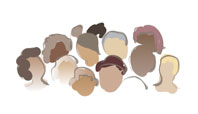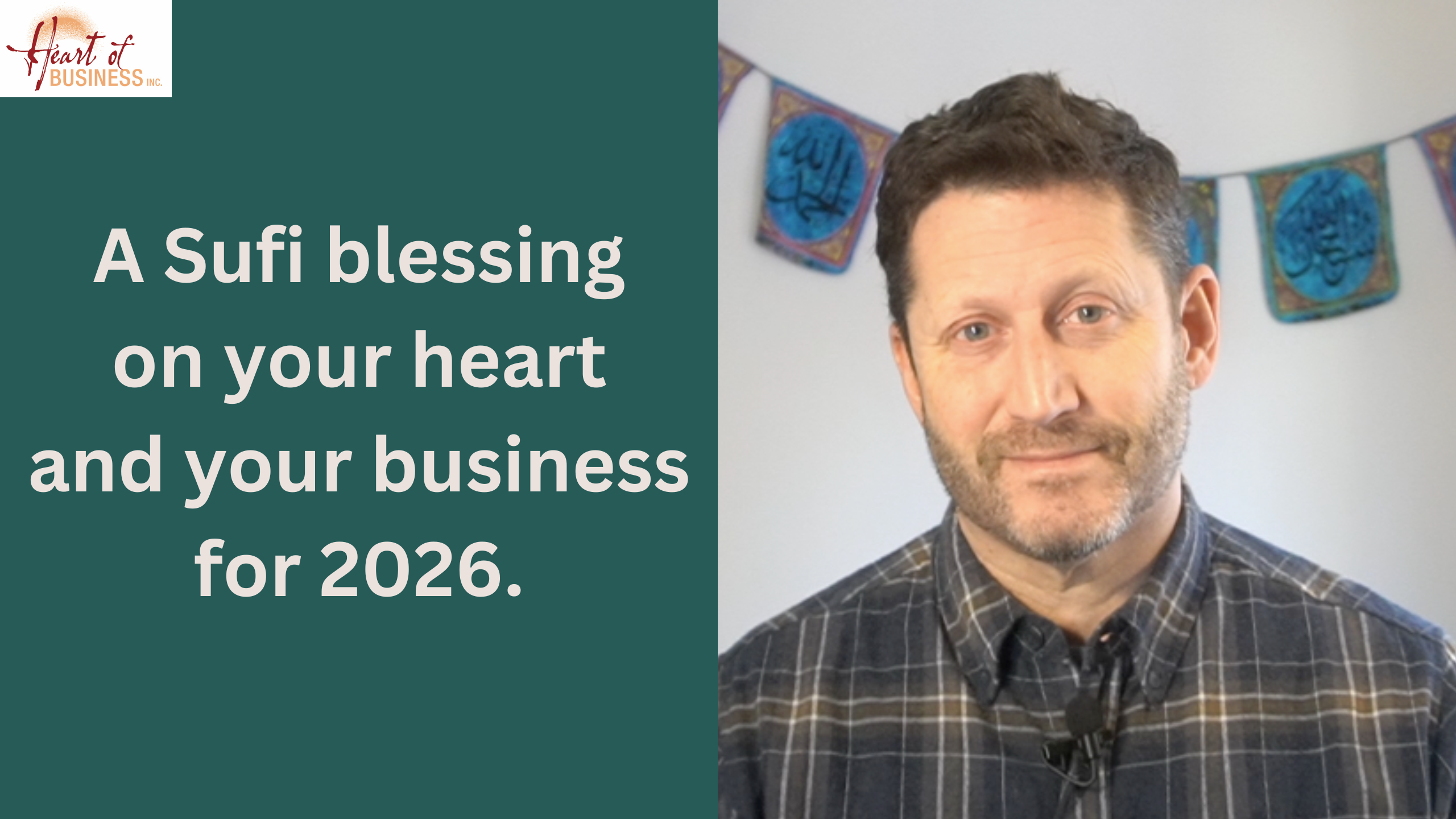 The simple act of asking for referrals added $40,000 in revenue for us.
The simple act of asking for referrals added $40,000 in revenue for us.
Wow. And, actually, it’s been more than that, I’m just thinking of the latest requests we’ve made.
I, however, have a history of being very shy about asking for referrals. So much so that colleagues have remarked on it, “How come you never ask?” Thankfully I’ve been pushed by my practitioners, Jason and Yollana, to step into it more courageously these past few years, and it’s made a big difference.
Unfortunately, even when you ask for referrals, they can go wrong. Today, at the start of 2013, I want to talk about what makes referrals work, and challenge you to lean into the love and support that surrounds you and your business.
Why Referrals Go Wrong
Someone who is perhaps willing to refer to you won’t for two reasons. The first is that they can’t make the referral easily. The second is that they don’t know or trust what happens after the referral is made.
And for someone referred who is a perfect client for you? They won’t follow up on the referral also for two reasons. One, they can’t check you out from afar. Two, they don’t know what happens after they contact you.
Because business has been done so badly so often, the unknown in business is not very enticing. Think about how vulnerable it is for someone who is stuck to reach out and get help from a stranger.
And think about how vulnerable it is for someone who has spent a lot of time and care building trust with a group of people to send that group of people into someone else’s arms.
The bottom line in referrals is: think safety. In fact, that’s the bottom line in marketing. Give potential referrals the chance to get to know you and what you’re offering without ever having to pick up the phone, send you an email, or even let you know they are there.
Of course, the main way to do that is through your website, which is one of the many ways the internet is such a boon to small businesses. Chain stores grew up in a world where people were becoming more mobile, and going into a new city they didn’t know the small businesses. So the chain store provided a familiar brand and experience, making up (poorly) for the familiarity people had with local businesses when we used to live in the same place for 40 or 60 or 200 years.
So make sure you show your caring and create connection and trust through your website.
Now, for those who will be making the referrals? Make sure you explain what happens after the referral is made. “They’ll read about our program, they’ll fill out an application, and we’ll have a no-pressure 30-60 minute conversation. They won’t be pressured to make a decision while on the phone.”
Also, make it easy for them. Explain exactly when and how you want them to do it. Give them the link to the page. Whatever you can do to make it easy for them to make the referral is going to make it that much easier for them to actually make the referral.
What About Referral Fees?
Paying someone for a referral is a nice thank you. However, don’t make it the center point of your referral program. You want referrals coming from people who love and trust you, those who want to see you do well in the world and help more people.
When referrals are made simply to make money for those making the referrals, it leaves a bad taste in everyone’s mouth. First of all, the referrals won’t be that effective, simply because they probably don’t have a lot of trust or a deep connection of caring with their audience. Secondly, when things are don’t solely for the money, it can lead to questionable actions, people making false claims and portraying you and your service inaccurately. Not good.
However, for someone who otherwise loves and supports you, but has a busy schedule themselves, it can help them to make space in their marketing calendar to promote you instead of their own stuff, if they don’t have to sacrifice income to do it.
Be Humble in Your Courage
You need help. I need help. We’re all needy for help. It’s okay. That’s being human. Touch into that humility. In letting go of attempting to be without needs, it’s easier to recognize how truly dependent we all are on each other’s love.
It’s okay to ask for referrals. Think about your past clients. Think about colleagues, friends, others who know you who have groups or communities or lists of the kind of people you help.
Then make it easy. Make it safe. And ask.
Share with us: how can you be more humbly courageous in asking for referrals this year? What can you share that has worked? What might be stopping you from it? Let’s talk…
p.s. Next week we start a One Year Journey
There are just a few spots left to join us for Opening the Moneyflow 2013, a full year of hands-on, in-depth support from the entire Heart of Business team, with just a small group (no more than 20). Double your revenue? Deepen your spiritual and heart’s connection to your work? Finally have a sustainable business that doesn’t burn you out?
Fill out an application and talk to us. And if you know someone who could use it, please forward them this email and recommend they sign up for our newsletter so they can read our free workbook and understand where we’re coming from, and encourage them to read about the program. Yes, that’s me asking for a referral. 😉
Read and apply: Opening the Moneyflow 2013







11 Responses
This is such a helpful and beautiful reminder of how important it is to create a safe space for people. I’ve asked for referrals a few times and received a few unsolicited referrals, but I don’t really have a system in place and I haven’t really explained what happens when a referral contacts me (and the truth is that I’ve pretty much made it up as I go along). So, it’s time for me to make it a bit more clear. I actually love those introductory phone calls, but asking a few questions in advance could make them even more helpful.
Here in Newburyport, there is a lovely little salon that has a *fabulous* referral program that I’ve tried to adapt to my own business. After my first haircut, I received a thank you note and two $10 gift cards–one for me, one for a friend. Both of us have been going to that same salon now for three years. While I don’t offer gift cards, I do send honest, heartfelt thank you notes.
Thank you again for this great piece. I’ve got my thinking cap on . . .
Erica- So beautiful that example is. And here’s to getting more clear!
Thank you for this. I have always struggled with referrals. My clients often have a hard time explaining what I do. I am reminded to pull out my “One compelling sentence” and craft something to share. That said, I have been really tentative asking professionals for referrals as mentioned in the newsletter. How does someone approach a professional, like yourself, who could promote or interview on a weekly tele-call/newsletter/webinar?
Wendy- yes the One Compelling Sentence is indispensable with this, so people know who to refer. The best way to approach is to reach out. Research, see where what you do is benefit to their clients, and then reach out in a humble way. That’s the short answer. We teach a class on Strategic Alliances, but it’s really about seeing things from the other person’s perspective. 🙂
Note that in some jurisdictions, the payment of a referral fee is unethical. For instance in NYS licensees cannot pay or receive referrals fees (or other things of value) or share professional fees with non licesencees.
Elizabeth- great point! Yet another reason not to make it a central part of a referral program.
Thank you for writing about this again. A previous post of yours on this topic made a huge difference to me. I’m still working on this issue but your perspective has been revolutionary.
You’re welcome, JoVE. I’m so glad it’s been so helpful… I’ve gone through quite an evolution with it myself.
This dropped in at just the right moment Mark. This year I’m going to be addressing moving from a fully bespoke model to introducing more package-based offerings, and so dealing with that fear of becoming more visible and actually making ‘asks’ is on my mind. I think you’re right in that safety is the most important thing, too, and I think stumping up for an expensive course or package is hard as a new referral (and for the referrer – more at stake). Perhaps a balance of very affordable low-risk options as well as a higher priced intensive option is the part of creating more safety both ways. Incidentally, the website CMS I’m using automatically rewards community members with virtual ‘credits’ when they interact or refer people to the site: having fun thinking up ways people could actually use these for something. I’m still a bit ‘ick’ about affiliate programmes though…
Jo- It is important to have a variety of offers so that you can be present with each person and each relationship as appropriate. And it’s so helpful when the technology supports what we’re wanting to do! Affiliate programs need to be used consciously and appropriately to make sense to the heart. I’m guessing the ick has come from times it’s gone wrong, not from the underlying idea itself. Yes?
A nice text with a lot of valuable facts, I totally agree with you that most client miss the referral for one reason: they don’t trust what’s going to happen when they give a referral.I think that this trust can be built up, although it is a hard way, but it’s really worth for it.